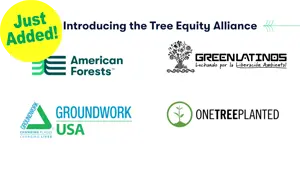
Tree Equity Alliance
Tree Equity Alliance is a coalition to create a unified voice on the critical need for equitable tree canopy.
Accelerating resiliency planning in communities across the Commonwealth

Tree Equity Alliance is a coalition to create a unified voice on the critical need for equitable tree canopy.
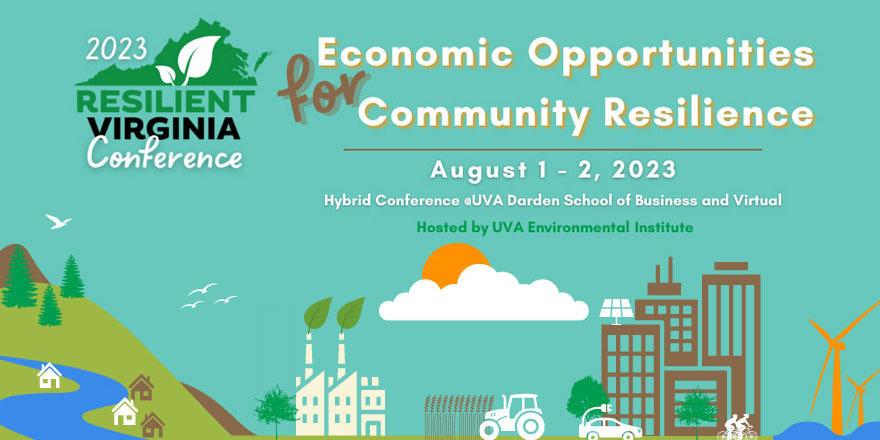
Our 2023 Conference delivered tools, information, and networking opportunities for Virginia’s resiliency leaders and professionals.


Resilient Virginia’s 2026 Resiliency Academy is a 10-session webinar series designed to help communities understand change, reduce risk, and build long-term resilience using practical, systems-based, and equity-centered approaches.

Virginia is facing growing challenges from sea-level rise, recurrent flooding, extreme heat, and economic disruption—making coordinated resilience planning more essential than ever.
Beginning in 2026, Resilient Virginia will launch the Resilience Foundations Certificate Program, a first-of-its-kind professional development initiative that brings together leaders from government, business, academia, and community organizations to advance systems-level resilience across the Commonwealth.
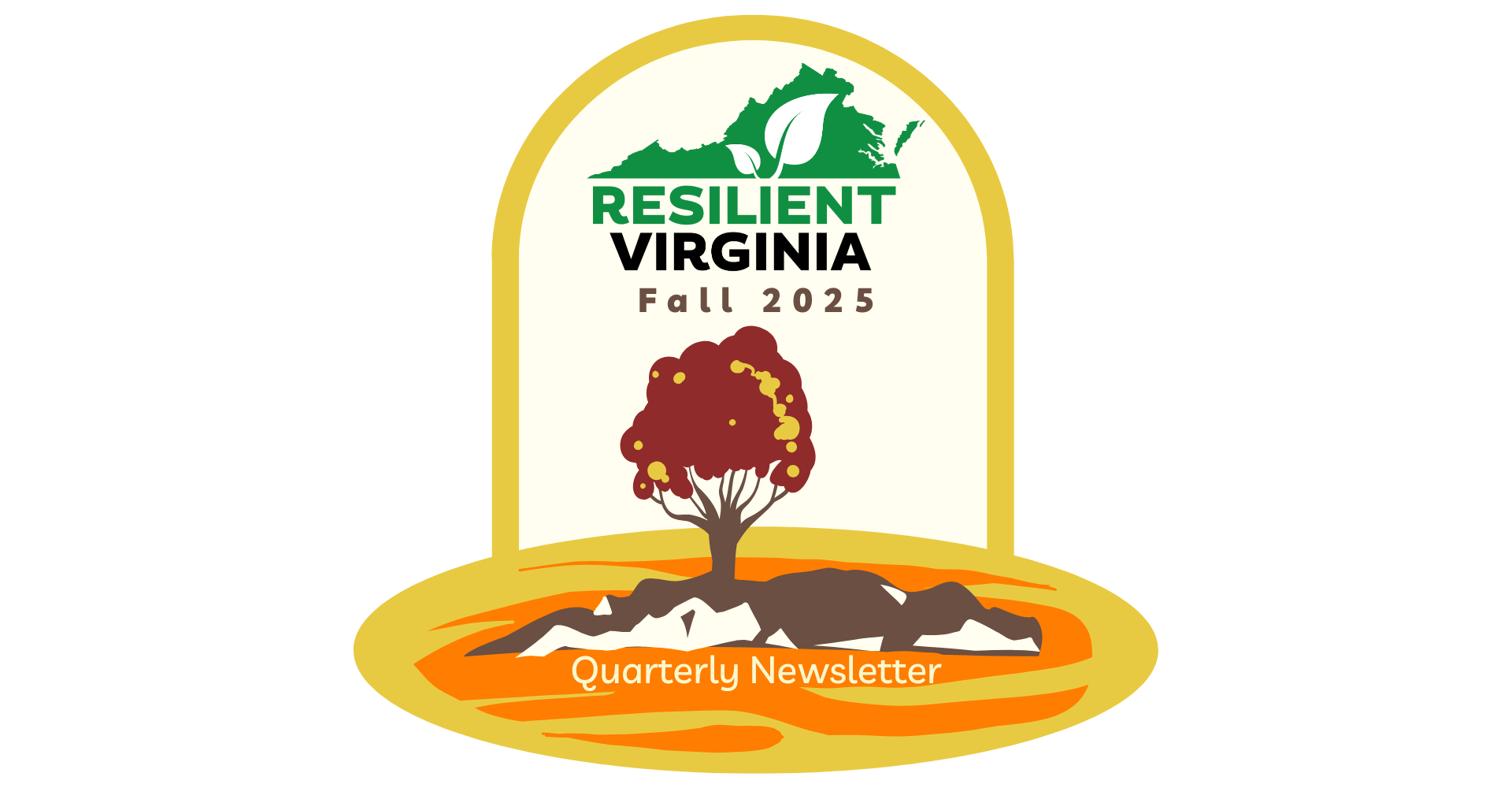
The Power of Partnership … Spotlight On Webinar Series … Resilience Certificate Survey … Interactive StoryMaps Advance Climate Equity … RVCA Updates … Tackling Emerging Contaminants Water Technical Assistance … Closing America’s Wastewater Access Gap Initiative … Firewise Virginia Community Hazard Mitigation Grant Program … more.
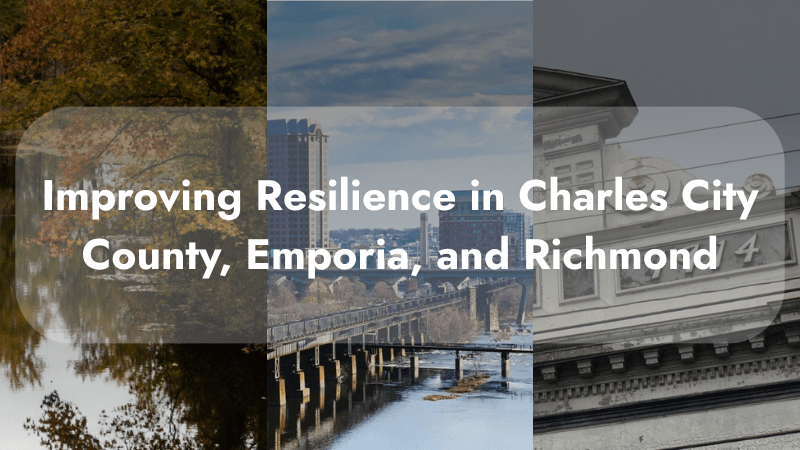
VCU RISE has launched interactive StoryMaps to highlight environmental justice issues in Charles City County, Emporia, and Richmond. Learn how these equity-focused tools blend local data, maps, and community stories to support planning, resource access, and climate resilience.
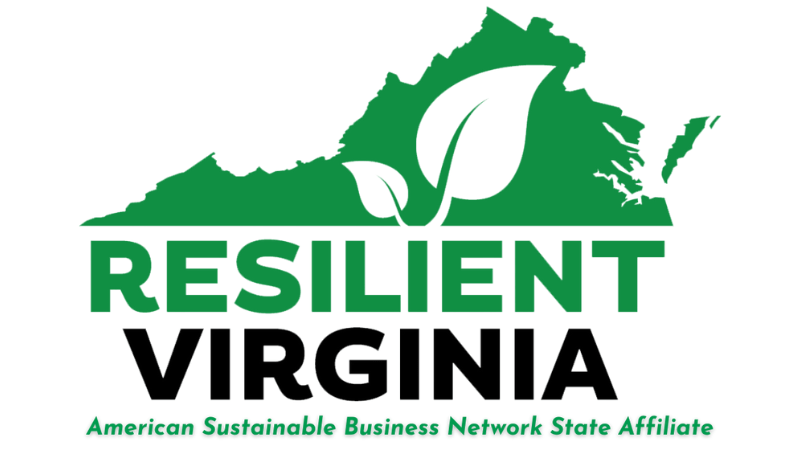
Resilient Virginia has joined the American Sustainable Business Network (ASBN) as a proud state affiliate—connecting our local work to a powerful national movement for a just, equitable, and sustainable economy. This partnership gives us—and our members—greater access to resources, national campaigns, funding opportunities, and a stronger policy voice. Learn how this affiliation is helping us scale impact and drive sustainable change across Virginia.

This fall, Resilient Virginia is rolling out a lineup of virtual and in-person events aimed at bringing people together and sharing real-world tools for building stronger, more resilient communities across the state. From webinars and workshops to networking meetups, there’s something for everyone—whether you’re focused on agriculture, energy, infrastructure, the economy, or community development, or just getting started on your resilience journey.
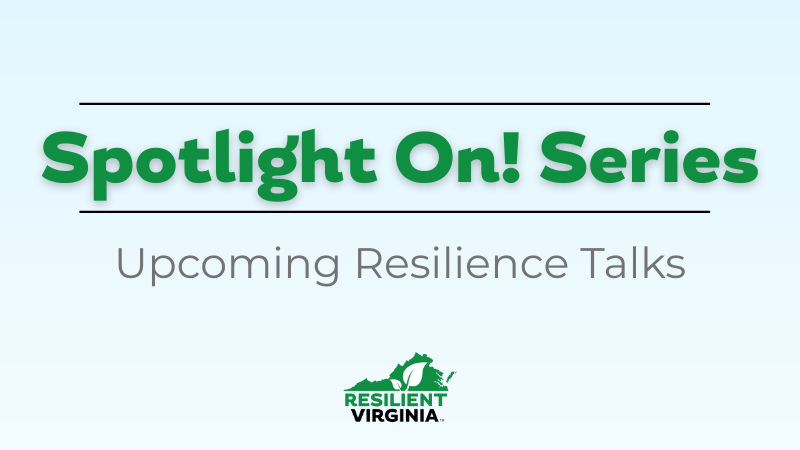
Couldn’t attend every session at the recent Resilient Virginia Conference — or weren’t able to attend at all? You’re not alone—and we’ve got you covered.
Resilient Virginia is planning a series of post-conference sessions that will revisit the most in-demand topics from the conference—and the first three are happening soon!
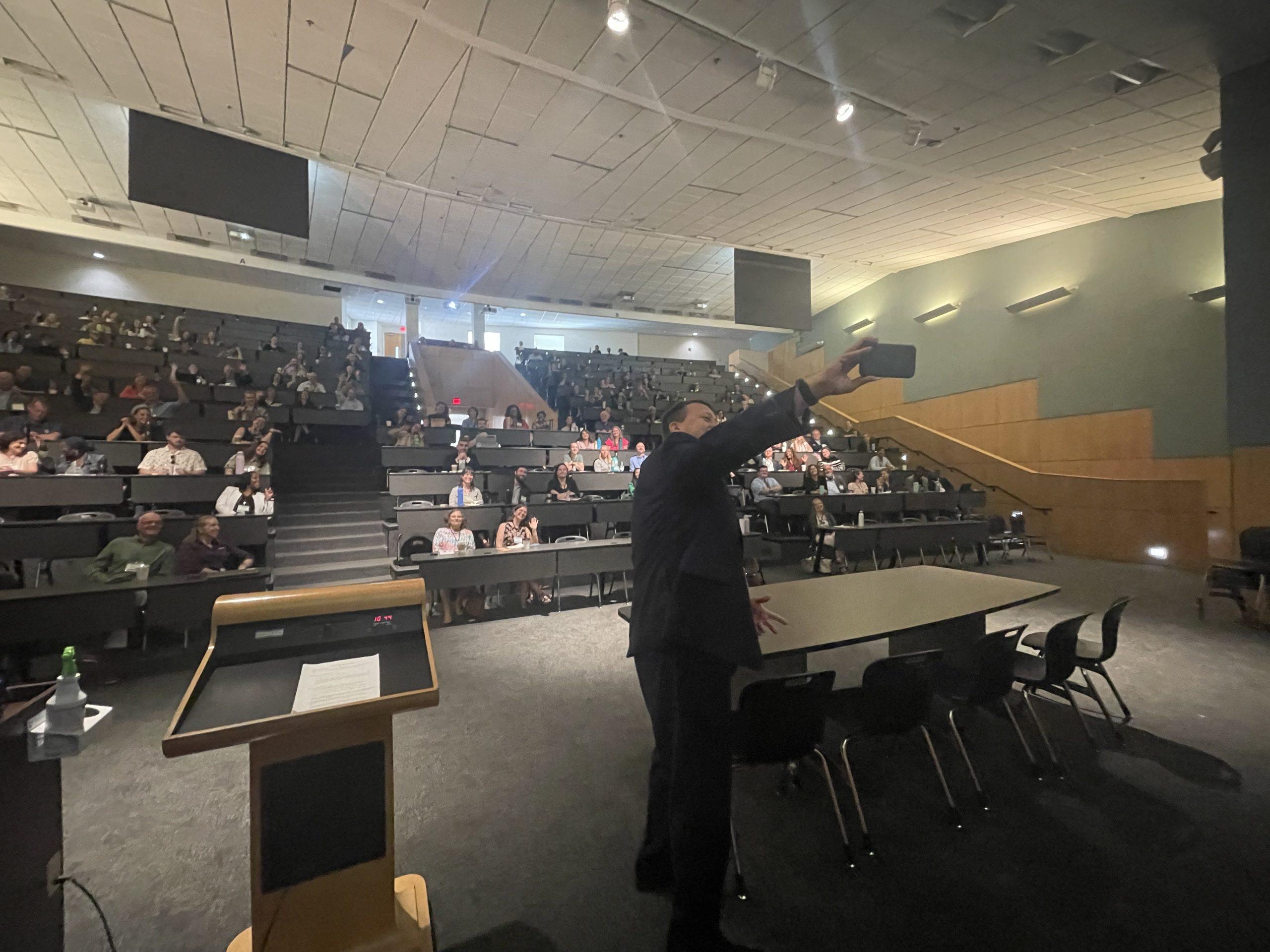
Over 200 leaders, experts, and community advocates gathered at James Madison University this July for the 2025 Resilient Virginia Conference, themed “Moving Virginia Forward.” The two-day event offered a powerful mix of strategic insights, grassroots innovation, and hands-on learning—from climate-smart infrastructure and equity-driven planning to immersive experiences like the Science on a Sphere and FIRST Chesapeake’s “Robot Petting Zoo.”

Tree Equity Alliance is a coalition to create a unified voice on the critical need for equitable tree canopy.

Our 2023 Conference delivered tools, information, and networking opportunities for Virginia’s resiliency leaders and professionals.


Resilient Virginia’s 2026 Resiliency Academy is a 10-session webinar series designed to help communities understand change, reduce risk, and build long-term resilience using practical, systems-based, and equity-centered approaches.

Virginia is facing growing challenges from sea-level rise, recurrent flooding, extreme heat, and economic disruption—making coordinated resilience planning more essential than ever.
Beginning in 2026, Resilient Virginia will launch the Resilience Foundations Certificate Program, a first-of-its-kind professional development initiative that brings together leaders from government, business, academia, and community organizations to advance systems-level resilience across the Commonwealth.

The Power of Partnership … Spotlight On Webinar Series … Resilience Certificate Survey … Interactive StoryMaps Advance Climate Equity … RVCA Updates … Tackling Emerging Contaminants Water Technical Assistance … Closing America’s Wastewater Access Gap Initiative … Firewise Virginia Community Hazard Mitigation Grant Program … more.

VCU RISE has launched interactive StoryMaps to highlight environmental justice issues in Charles City County, Emporia, and Richmond. Learn how these equity-focused tools blend local data, maps, and community stories to support planning, resource access, and climate resilience.

Resilient Virginia has joined the American Sustainable Business Network (ASBN) as a proud state affiliate—connecting our local work to a powerful national movement for a just, equitable, and sustainable economy. This partnership gives us—and our members—greater access to resources, national campaigns, funding opportunities, and a stronger policy voice. Learn how this affiliation is helping us scale impact and drive sustainable change across Virginia.

This fall, Resilient Virginia is rolling out a lineup of virtual and in-person events aimed at bringing people together and sharing real-world tools for building stronger, more resilient communities across the state. From webinars and workshops to networking meetups, there’s something for everyone—whether you’re focused on agriculture, energy, infrastructure, the economy, or community development, or just getting started on your resilience journey.

Couldn’t attend every session at the recent Resilient Virginia Conference — or weren’t able to attend at all? You’re not alone—and we’ve got you covered.
Resilient Virginia is planning a series of post-conference sessions that will revisit the most in-demand topics from the conference—and the first three are happening soon!

Over 200 leaders, experts, and community advocates gathered at James Madison University this July for the 2025 Resilient Virginia Conference, themed “Moving Virginia Forward.” The two-day event offered a powerful mix of strategic insights, grassroots innovation, and hands-on learning—from climate-smart infrastructure and equity-driven planning to immersive experiences like the Science on a Sphere and FIRST Chesapeake’s “Robot Petting Zoo.”
Resilient Virginia Collaborative Alliance Agriculture Working Group monthly meeting. Anyone is welcome to join the conversation!
RVCA Agriculture Working Group
Thursday, October 23 · 11:00am – 12:00pm
Time zone: America/New_York
…
The National CASC is hosting a quarterly webinar series on the RAD (Resist-Accept-Direct) framework, a tool that helps resource managers make informed choices for responding to change. This series focuses on examples of RAD…
The Lincoln Institute of Land Policy’s Consortium for Scenario Planning is hosting its ninth annual conference February 4–6, 2026, at the University of Utah in Salt Lake City, Utah. Cohosted by the Lincoln Institute, the…
Resilient Virginia Collaborative Alliance Agriculture Working Group monthly meeting. Anyone is welcome to join the conversation!
RVCA Agriculture Working Group
Thursday, October 23 · 11:00am – 12:00pm
Time zone: America/New_York
…
Resilient Virginia’s 2026 Resiliency Academy is a 10-session webinar series designed to help communities understand change, reduce risk, and build long-term resilience using practical, systems-based, and equity-centered approaches.
Virginia is facing growing challenges from sea-level rise, recurrent flooding, extreme heat, and economic disruption—making coordinated resilience planning more essential than ever.
Beginning in 2026, Resilient Virginia will launch the Resilience Foundations Certificate Program, a first-of-its-kind professional development initiative that brings together leaders from government, business, academia, and community organizations to advance systems-level resilience across the Commonwealth.
The Power of Partnership … Spotlight On Webinar Series … Resilience Certificate Survey … Interactive StoryMaps Advance Climate Equity … RVCA Updates … Tackling Emerging Contaminants Water Technical Assistance … Closing America’s Wastewater Access Gap Initiative … Firewise Virginia Community Hazard Mitigation Grant Program … more.
VCU RISE has launched interactive StoryMaps to highlight environmental justice issues in Charles City County, Emporia, and Richmond. Learn how these equity-focused tools blend local data, maps, and community stories to support planning, resource access, and climate resilience.